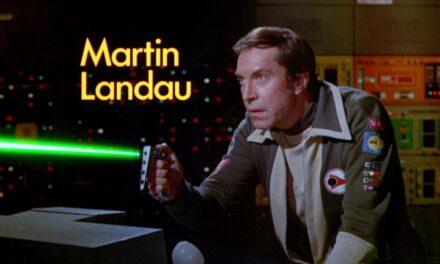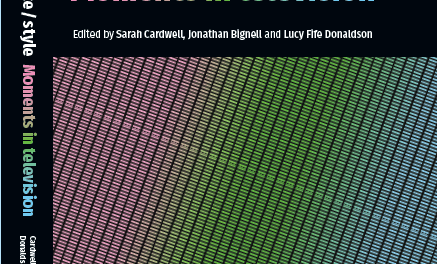Here’s the problem. The licence fee is a cheap and elegant way of funding public service TV. It’s far cheaper than a Sky subscription and yields far more original UK production. However, a lot of people wriggle out of paying it, so prosecutions of licence fee defaulters clutter up the courts. “Cases of people accused of evading the £145.50 fee accounted for more than one in 10 of all criminal prosecutions last year – with 155,000 convicted and fined”. The problem is that the unfortunates who get prosecuted are not the tech-savvy who evade by watching online, but the really poor.
And it is disproportionately poor women who end up in jail for non-payment of those fines levied by the courts. This has allowed the current government to float the idea that non-payment of the licence fee should be de-criminalised. It’s unarguable really: who wants to see the poorest and most marginalised of our society banged up in jail for watching The One Show with their kids?
And so it begins: the gradual erosion of collective funding of a collective good.
That is the principle behind the licence fee. It gives everyone something big for very little, simply because everyone pays for it. The BBC is free at the point of delivery, like the National Health Service. But unlike the NHS, it is not paid for out of general taxation because, unlike the NHS, one of the key things it provides is independent journalism (I know: ‘up to a point, Lord Copper’). A BBC funded out of general taxation would be rather more like China’s CCTV and would have the international reputation to match. Instead, BBC News is a valuable global brand.
The licence fee pays for BBC1, BBC2, BBC3 (even when it goes entirely online), BBC4 and BBC News 24, along with a massive online news presence, a bunch of World Service activities and all the BBC’s domestic radio services… which, by the way, go totally free to anyone since the radio licence no longer exists.
All of this costs each licence fee payer £145.50 a year, a lot less than the £252 to £858 that Sky expects from its subscribers.
I hope that many readers of this site (apart, maybe from Toby Miller) do not need to be convinced of this, but the real problem is how to defend the licence fee… or rather, how to evolve it so that the problem of jailing people for non-payment will just go away.
Well, here’s the solution. Learn from history. It’s been done once already and can be done again.
From 1922, everyone in the UK paid for a radio licence. TV came as an add-on only in 1946. So the experimental TV from Alexandra Palace in the 1930s was the first BBC freebie… for the fortunate few Londoners who could afford to buy a set.
In 1946, a two-tier licence system was devised: £1 for radio only and £2 for radio and TV. The universality of radio is assumed in this new structure: who would get TV who hadn’t got radio already? In 1968 an even bigger fee was charged for having a colour TV.
By that time, TV had become a practically universal medium and the radio-only licence became less and less used. So in July 1971 it was abolished entirely.
This did not mean that people stopped listening to radios. They did so more and more, if anything, as radio became a universal convenience medium.
Now we have a situation where a lot of BBC TV can be legally consumed without using a TV. Anyone accessing BBC i-Player does not need a TV licence… so long as they refrain from watching live TV. So there they are, left out of the Twitter conversations about The Apprentice, which is frustrating if you are a mediaphile. And maybe they sometimes do succumb to the temptation… after all, who is going to catch them? They are in the reach of the hapless TV Licencing enforcers… unlike the household watching on a cheap TV set picked up from somewhere for next to nothing as something to while away the hours of unemployment or enforced domestic seclusion. And, students, they are coming to get you too.
Here’s the solution.
- Uncouple the need for a licence fee from the limitation of live broadcasting.
- Require that anyone using i-Player should have a licence fee.
- Since the licence fee is for a physical address, use that to log in to i-Player.
- Say that up to 10 devices can be covered by any one licence fee.
- Think up a sensible arrangement for multiple occupancy housing like student residences, hotels and the rest.
- Then, over time, make online access the key driver for licence fees and gradually leave old-school broadcast TV as a genuinely free service to the nation. Like BBC radio now.
If the BBC genuinely believes that TV will migrate online – which after all is the rationale for ending BBC3 as a broadcast service – then this is the obvious next stage in the evolution of licence fee funding.
Even if it isn’t, if – as I’m inclined to believe – the live broadcast TV signal has a future every bit as culturally important as radio has had, then this is still an important move to make for several reasons:
- It ends an evident unfairness whereby those with resources do not contribute, yet those without resources are punished
- It puts a stop to the various international leakages of i-Player which no-one at the BBC talks about but they all worry about
- It conversely enables us to watch BBC on holiday abroad
- It enables the BBC to harvest anonymised user data like Channel 4 does with 4-OD
- It enables the BBC to form an intimate relationship going forward with key consumers who wish to participate (I love that language, so warm…) like Channel 4 does with My 4-OD
The licence fee needs to be everyone’s friend, the convenient key to a wealth of content. At the moment, it is losing goodwill and is under attack from a government whose agenda is relatively clear. In the political arena, no-one is defending it.
The BBC is not keen on the idea of bringing i-Player into the licence fee system because, according to Channel 4 chair Lord Burns, “they won’t even think about it because they think it is the first step towards subscription. They will not even think about it because they are so wedded to the licence fee”. His idea is that the BBC should “either say you can only watch the iPlayer if you have a licence fee, or you can watch the iPlayer without a licence fee if you pay some money”. Perhaps that’s why the BBC is so resistant: Burns is floating the idea that i-Player would be accessible temporarily for a one-off payment.
The idea proposed here is different. It sees i-Player as the next generation of delivery of public service TV to all those who have paid the licence fee to access public service TV. Other, older, forms of access would continue and would, in time, become free. The licence fee is already a subscription in most people’s minds: indeed the argument most people make to defend it is that it is a vastly superior, more efficient, more effective (and cheaper) form of subscription. So where is the problem, BBC? The licence fee is discrediting itself, so the BBC had better come up with a fresh solution. Tying the licence fee to i-Player, now it is firmly established as an excellent product, is the best way forward.
JOHN ELLIS is Professor of Media Arts at Royal Holloway University of London. He leads the ADAPT project on the history of technologies in TV, funded by a €1.6 million grant from the European Research Council. He is the author of Documentary: Witness and Self-revelation (Routledge 2011), TV FAQ (IB Tauris 2007), Seeing Things (IB Tauris 2000) and Visible Fictions (1984). Between 1982 and 1999 he was an independent producer of TV documentaries through Large Door Productions, working for Channel 4 and BBC. He is chair of the British Universities Film & Video Council and also oversees the Royal Holloway team working on EUscreen. His publications can be found HERE.





